Interview with Our Lady Peace, Simple Plan Management: Coalition Music
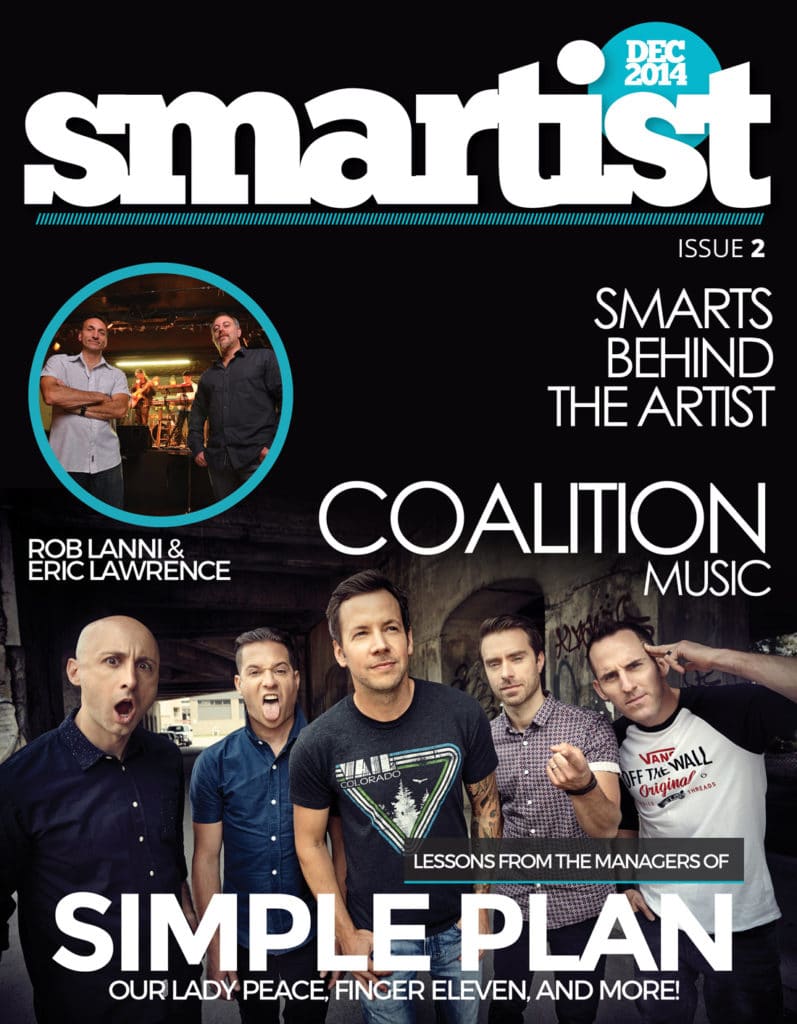
In this interview we find out:
- What to expect as a manager
- What to expect as an artist
- How long it took until they were able to build a team
- Building contacts
- Increasing your client list
- Their thoughts on “babysitting”
- What they do when they first sign an artist
- Being involved in the creative process
- Managing from a distance
- And more!

Welcome Rob Lanni and Eric Lawrence of Coalition Music (Toronto, Canada)! I had a great time interviewing these two, they are so down to earth, genuine, and quite funny too. As you’ll find out below, Rob and Eric co-founded Coalition Music together back in the 80’s. Today, Coalition is a premier music management company, record label and “music incubator”, whose management roster includes JUNO Award-Winning and internationally touring artists such as Our Lady Peace, Simple Plan, Justin Nozuka, USS, Raine Maida, Faber Drive, Andee, and many more.
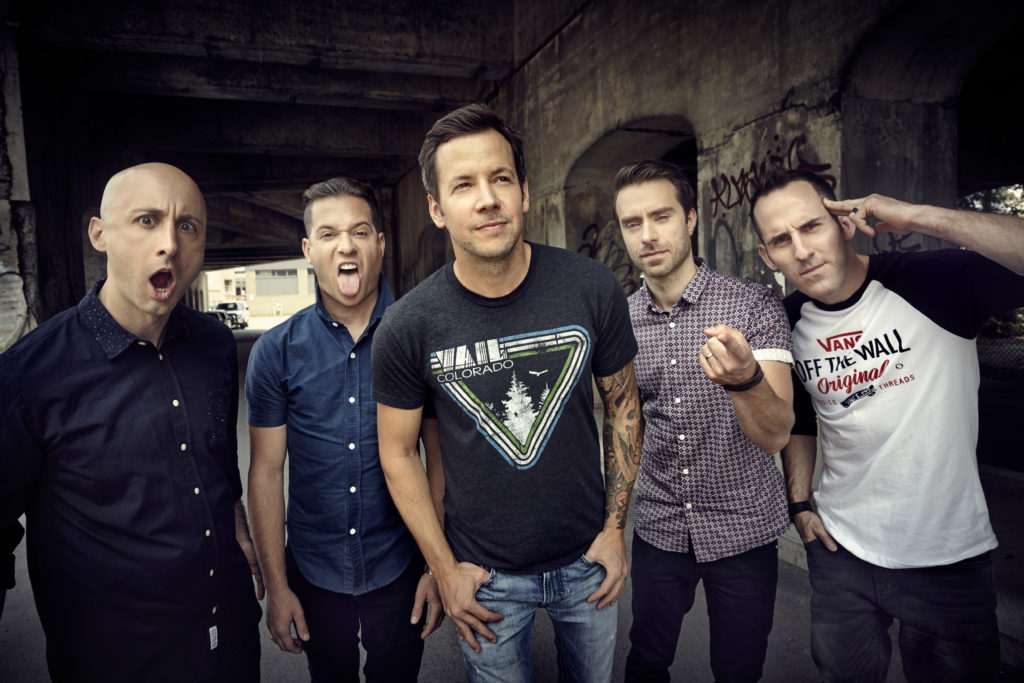
How long did you wear all of the hats of the business before you started hiring internal team members to help with administrative tasks?
As for internal, we had a huge hat rack. For pretty much the first decade we wore all the hats. It was just the two of us until our first full-time hire, by the time we could afford someone, close to 10 years later. We began in 1987, and in 1998 we hired our first full time employee, Devi, and she’s still with us today. After the 3rd year, Eric came off the road when the management company really started to grow, so we hired Devi. She was primarily hired to do bookkeeping and general office stuff. Even then, we were still wearing all the hats with the exception of bookkeeping.
Did you wear hats like Booking Agent or Publicist? How soon did you start building “the team”?
We didn’t act in those capacities back then. In those days, there were lots of major labels, so every act we represented had a deal with a major label, where a team was already built in. You could have a one-or two man show, and rely on the label to do all the press, promotion, publicity and even work with you to find an agent for you. So for the most part, they all had a team developed right from the get-go.
So for us, we would see if we could get them signed to a label as soon as possible, and then we would help find them a booking agent, but it was easier. We didn’t book any of our early artists ourselves, nor did we publicize their albums ourselves. We found the team. If there was no team there was no artist.
The hats we wore were to run our own business, so we would do our own bookkeeping and planning and marketing, up until a point where we could afford to bring people on. Because if you have more than one act, that’s when you spread yourself thin and need an internal team.
What did you do to get yourself connected to the right people (then and now)?
Same thing we do now, same thing every artist and new manager should do. Go out and extend your hand, reach out to people, get to know them, and say “may I pick your brain please and thank you”. We do the same thing we’ve always done, we send them a note and say “hey we do this, I’d like to talk to you, I admire what you do”. Just reach out and create relationships.
We also went to conferences to try to meet people. Back then there were only two major conferences, “New Music Seminar” in New York, and Canada had “The Record Conference” (which eventually evolved into Canadian Music Week). Today there are so many, and they all have their advantages for the different types of people that go to them. Go to any of them, connect with the speakers, meet people in the hallway, email them, and phone them. Find people.

Managers must be patient and understand that stars are not created over night, and it can take a while before anyone can actually make a living. How long did it take until you were able to quit your jobs and become full time managers?
It was a good 8 or 9 years of supplementing our artist management day-jobs with other evening jobs not related to music. It slowly became our full-time business and after 8 years we were able to quit our jobs. In those days you didn’t have mobile devices where your email and office could come with you wherever you went. So we had to spend our daylight hours next to the land-line for music business opportunities, and then we worked evening and overnight jobs when the music industry was asleep. You’re more accessible now, so you can take other day-time side-jobs while still being available for any artist business matters.
It’s no different today with other managers and self-managed artists’, they have 2 and 3 part-time jobs to supplement the income, or family to help them. And, we were both smart, we married amazing women who had jobs and who agreed to help support us while we built our business.
Was there a ‘tipping point’ that made this happen, or was it a gradual increase in revenue from the artists?
It was mostly a gradual increase over 8 years. However, the real tipping point was surrounding Our Lady Peace’s (OLP) debut album ‘Naveed’, which came out in 1994. That set us on a path. They took about a year to build a real profile, and then in 1995 Naveed came out in the US, at which point they went on a major US tour with Van Halen. Up until that tour in 1995 we were still hanging in there working part-time jobs and then it was like “boom, ok now we can do this full-time”. Eric quit his over-night job at the airport in 1995.
During this time we still had Frozen Ghost too, but they were just winding down, and Wild T & The Spirit who were also winding down as well. You go through cycles with artists.
At what point did you bring on your 2nd roster artist, 3rd, and so on?
1987 – 1993 was Frozen Ghost (Rob’s brothers’ band) and Wild T & The Spirit
In 1993 we took on Our Lady Peace which was our first ‘tipping point’ artist
In 1996 we signed Rainbow Butt Monkeys who became Finger Eleven
There was another artist we took on in 1996, an alternative art pop artist named Spookey Ruben. He was signed to TVT Records (in the USA, Universal in Canada, Quattro in Japan) at the time and we managed him for one album.
As managers who work around the clock to run a management company, what does “Work-Life Balance” mean to you? How do you balance your time between the artists and your family? What are your working hours like? Do you ever take vacations?
There is no specific division around time. It varies, depending on the artists’ cycle. It’s a constant juggling act; whatever needs the most attention at the time gets that attention.
Eric: If I’m on vacation I like to take time away from “it” but if our artists need attention and something is going on then I deal with it. I don’t separate it, to me they ram into each other. If I’m sitting at my desk and one of my kids calls me urgently, then that takes precedence…same with our artists.
Rob: Like most entrepreneurs, there is no division. It’s part of who you are. You’ve started a business, you should always be accessible.
Eric: Our artists and our families get as much time as they need. No one should feel like they aren’t getting the attention they need.
Rob: We do go on vacations, but we live in a mobile world and I feel that you should be responding to important emails, and quick phone calls. There are some people who actually turn off, but I don’t like shutting off. I find ways to distance myself from work but I’m always connected.
Eric: Sometimes I go into the office on the weekend to clean up my desk, but it’s not a necessity, my work always comes with me where I go. I go to bed at midnight and I get up at 5:15. Just because.
Rob: Some people go to bed at 4:00am, but that’s just not me. I like to get up early but it depends on the cycle you’re in.
Rob: But sometimes you need to be physically together [like in the office] to hash things out. The rest of the music industry doesn’t really work on the weekend, unless they’re touring. So really, Monday to Friday it’s ‘go-time’.
What are some things a manager should not be expected to do?
Today, a manager should wear every single hat until he/she can start piecing those things off. One of the things we like to try to piece off is Business Management, so we can separate the money from our work. It’s tough to handle the artists’ money as well as everything else. We will at first, but we always find someone else who can manage their money as soon as we can. As well as booking agents. We do help book shows on behalf of some of our newer artists, but we try to find them booking agents right away. There’s nothing that managers shouldn’t do, but there’s a list of things you can start taking off your plate as you build your family (like money management and booking shows as mentioned).
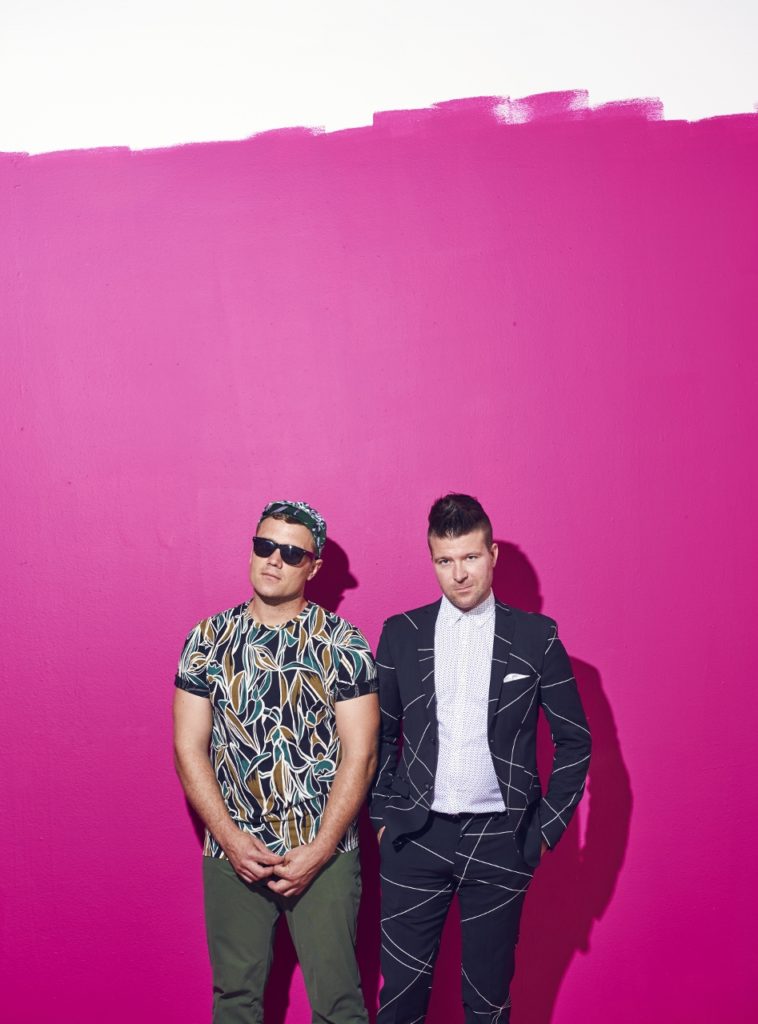
Some people have said that managing is like “Babysitting” do you ever feel that way?
We don’t feel that way. We think that’s disrespectful to the artist and we’ve never said that.
When we start working with an artist we explain what our relationship is. We’re in business together, we’re building something together.
We get close personally with our artists so if something bad or emotional happens often we share that together, but we’ve never had to call it ‘babysitting’.
I don’t feel like I’m babysitting my kids at home either. You don’t babysit your own kids.
How involved are you in the artists’ career from the creative standpoint?
We don’t write the songs, but we get involved as soon as they start delivering songs to us. We tell them what we think, where it fits, where it might not fit. We often make suggestions, for example “have you thought of moving that chorus up so it kicks in quicker?” or we’ll suggest that it makes more sense to name the song after the hook, but we understand that our say is not equal to the artists. If the artist disagrees musically then we respect. We are involved in all of those things; from songs to artwork to the look and feel of the record campaign. We work together with our artists on all of it.
What you do look for in an artist before signing them?
There’s a bit of a mental checklist, like songs, songwriting, vocals, stage presence, how they carry themselves, professionalism. If they’re 16 we look at it differently than if they’re 26. If it’s an emerging artist, they may not have the experience of being on the stage so some things may need to be worked out. But they may have some amazing songs and are passionate.
What makes anyone like an artist? I like their songs, I like their voice, I like how they deliver their music. There aren’t one or two specific things that I look for. After a courtship of course, it doesn’t happen overnight. We spend time with each other and make sure it’s the right fit. Our definition of success has to be the same as the artists. We want to know what they want. If we think we can help them deliver and get them to where they want to go, then perfect. Like marriage, very few work out in the long run if they’re hastily put together. It takes some time.
When you sign an artist to your roster, what is the first thing you get down to business on?
It really depends on where the artist is at. Sometimes they’ll come to us with great songs, but are lacking in stage presence, or they are an amazing live act but don’t have the songs. Now we have to figure out how to get the area that’s lacking to the right point. If they need stage presence, we will hire some sort of coach. If they need songs, then there are some collaborators we can suggest.
Sometimes we love everything about them but they don’t have a clue about their own business or how to do business, but they have to show us that they can be an equally good partner. The artist drives the bus. They have to tell us how they want their career to evolve, but if they don’t have a sense for that we have to decide if we want to spend the time trying to give them those tools, or not.
Are your artists all based in the same city as you? If not, how does it affect your work and/or relationship if it’s long distance?
Our artists are located all over the place. For us it’s easier if the artist is geographically closer in the beginning stages, specifically. Just because you need to spend a lot of time together, getting to know each other, building a business together, so it’s just easier being close. With a newly signed artist we talk on the phone, email or text 5, 10, 15 times a day. All of our artists, in fact, we talk to them all a lot.
We talk to them all more when there’s stuff going on and talk less when there isn’t. Artists should be doing one of three ‘main’ things: writing, recording or performing. In some of those modes they are off the grid sort-of-speak, so we don’t talk to them as much. But when they’re on tour, for example, we talk to them way more because there’s a lot more going on.
It’s helpful for a Canadian emerging artist to be based somewhere in Southern Ontario in general for extended periods. It is way more convenient (as opposed to anywhere else in Canada), because there are more opportunities for shows and you may get a last minute offer. For example, a promoter in Buffalo may call for a show this coming Thursday and its Sunday. If you’ve got a band nearby you can offer that quickly. But if you’re in Vancouver for example, you’ll miss out on those opportunities. Based on sheer numbers, there are more markets to play in Southern Ontario than there are in the rest of Canada. Campuses, clubs, and depending on the genre of your music you can jump on so many shows; there are so many more opportunities to play. And not only that, just for networking, if you’re in a band in Toronto, you can go to the Rivoli, the Cameron and the Horseshoe and meet all these other artists for potential tour opportunities, for collaborations, it really opens up your network. It’s an advantage but not a necessity.
If a band from Alberta wanted to be managed by us, great. But at some point it would be an advantage for them to spend a lot more time here in Toronto. It could be a 3 month residency somewhere. Or they could spend a month going from Windsor to Quebec City. There are millions of people between those two cities, and so it’s smart to take advantage of that when you’re starting out.
It took Rob and Eric nearly a decade to build Coalition Music to the point that they could get rid of their side jobs. But essentially, it was the rise of OLP over the course of a year or two that tipped them over the edge and landed them into full-time artist management. For all of their artists, in the past and to the present, they either already had/have an agent and label in place or they try to get them one’s right away, along with a business manager (to manage the artists money). When they start working with an artist, they will do whatever it takes to get the artists career moving forward, build up what might be lacking, and prefer to spend a few months in the same city to get to know each other and make sure it’s the right fit.
Check out Coalition Music and all their projects at CoalitionMusic.com!
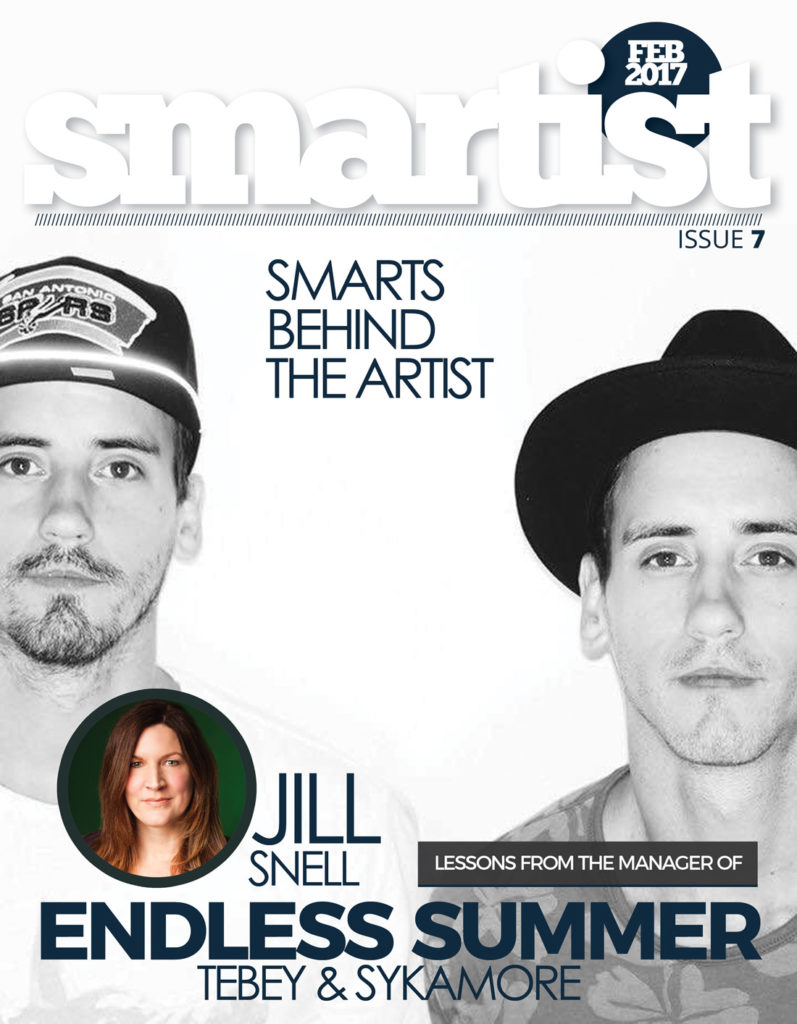
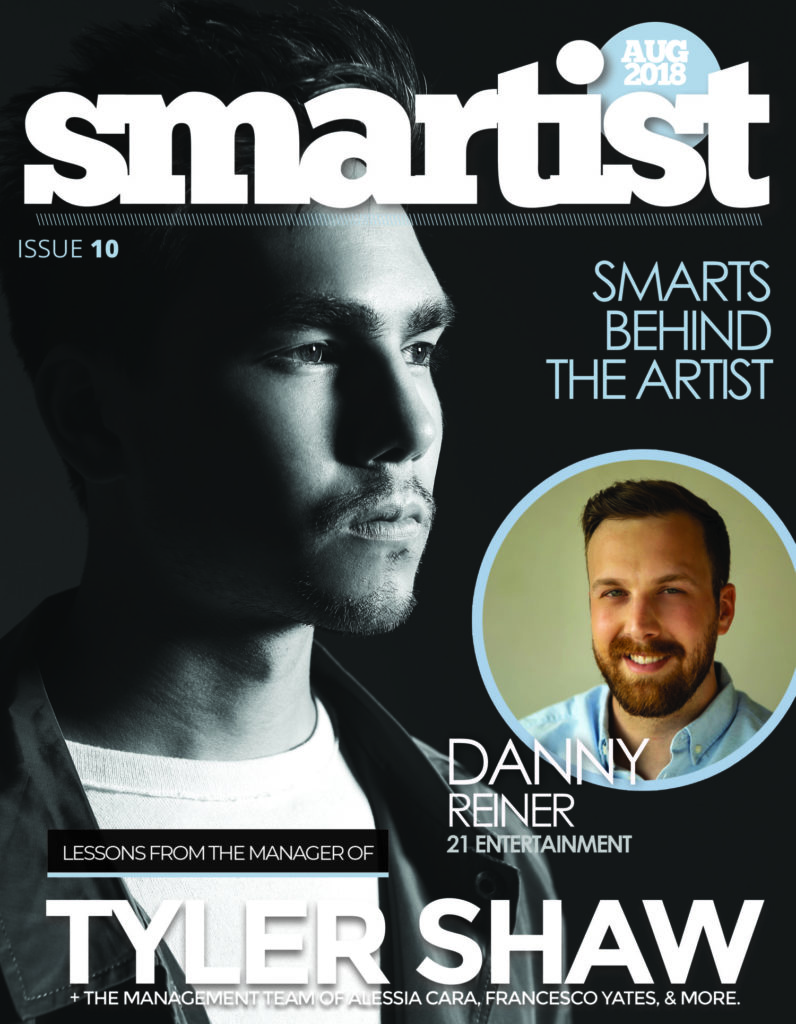
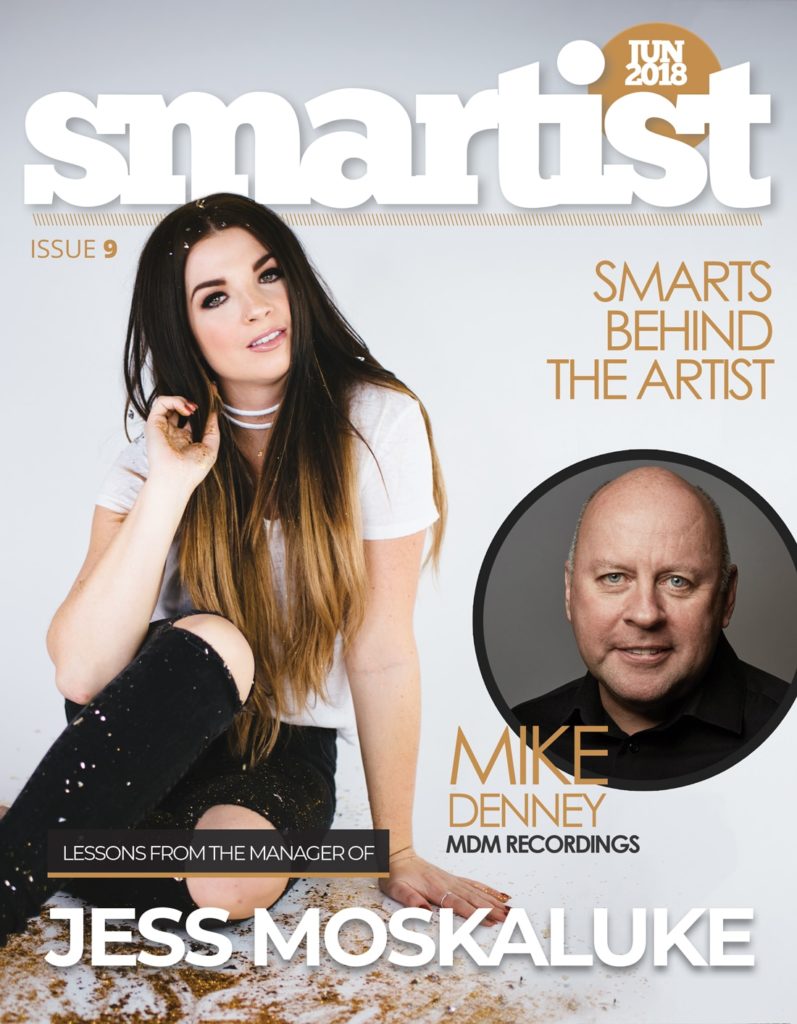
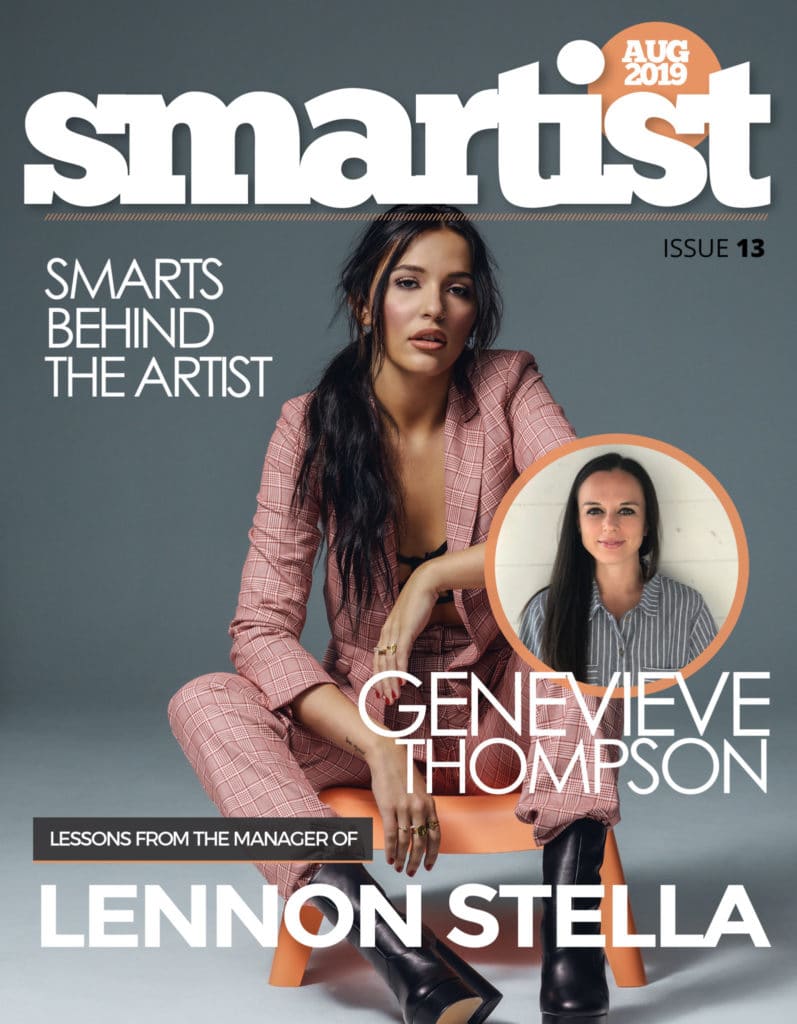

Responses